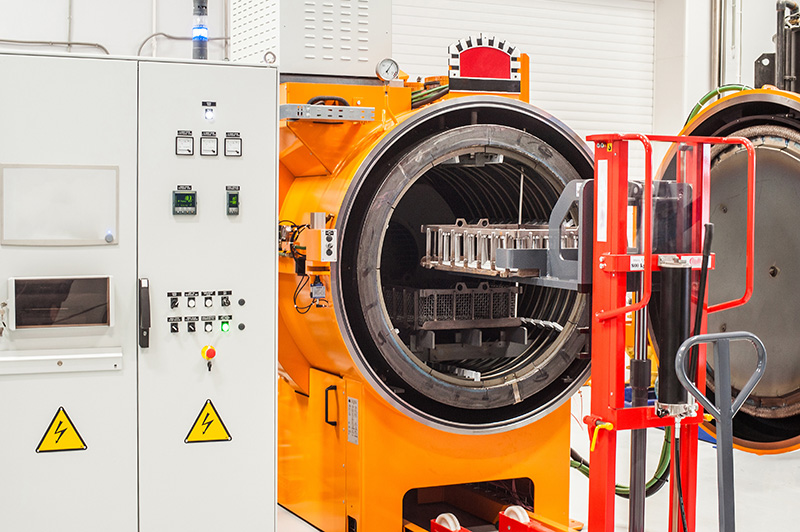A look at some of the common applications for industrial ovens.
Industrial ovens are widely used in various industries such as food production, electronics, chemical processing, oil and gas, pharmaceutical, and automotive. Industrial ovens are basically heated chambers that are used for various industrial applications such as baking, curing, and drying parts, components or various products. These can be used for small or big volume applications, continuously with conveyor lines, in batches, and a range of different configurations, sizes, and temperatures.
More often than not, industrial ovens are used in other applications such as food productions, chemical processing, and electronics companies where circuit boards are run through the conveyor oven to attach the surface mount components.

Some of the common applications of industrial ovens are as follows:
Industrial ovens can be used for sterilizing various medical devices and instruments. Other types of medical equipment that can be decontaminated using industrial ovens are medical and surgical components like staples and metal rods, scalpels, scissors, and syringes.
Industrial ovens that are used in the healthcare industry need the ability to control temperature accurately to ensure that all bacteria, microbes, viruses, and some contaminants that can be eliminated so medical equipment are safe to use.
When it comes to the pharmaceutical industry, oven innovation is deemed beneficial. It is because industrial ovens are used to bake the coatings of pills. Several industrial ovens are also used with thermal oxidizers to burn off the excess chemicals and waste made in the production of such products.
Industrial ovens can also be used for testing materials. For burn-in testing materials, the type of industrial ovens used is made for static and dynamic burn-in of integrated circuits and some electronic devices like laser diodes.
Drying has multiple definitions and serves a lot of purposes. When it comes to pharmaceuticals, it may mean curing the tablets from a slurry. It may also refer to the sterilization of any laboratory equipment or it can be an industrial oven that comes as tower dryers or web dryers designed for coating, printing, and packaging.
Heat treating refers to the application of heat to metals to achieve the desired effect. Basically, it includes tempering, aging, stress relief, and annealing, which takes place at set temperatures that are dependent on the materials being treated.
Tempering is the procedure to lessen the hardened metal’s brittleness. It requires a controlled and stable environment to achieve the right balance of ductility and hardness. Stress relief, on the other hand, is the application of the heat to relieve structural, residual, and thermal stresses, which result from gas cutting, welding, shearing, and cold working.
In terms of aging in heat-treating materials, it stimulates the effect of the time on the materials. For instance, in aluminum materials, aging hardens the materials to increase their durability. To avoid cracking and damage, the process requires steady and low temperatures that may take place for days or hours. To increase the ductility of the materials, annealing is basically the process to apply heat to the materials.
It’s the process in which materials are compacted and bonded without reaching the melting point. With this process, the materials increase strength and gain density. Used in various industries such as metal injection molding, dental industry, and metallurgy, the sintering process basically includes cool-down, high heat, and pre-heating.
Not all industrial ovens are made equal. They vary from one type to another. Below are some of the common types of industrial ovens you should know:
With the different applications where industrial ovens are used, it is important to note that industrial ovens are not the same with toaster ovens or usual cooking ovens. That is why you have to determine your needs first before you decide to buy an industrial oven. If you are confused with the available options, it’s best to ask for assistance from the experts in industrial ovens for you to choose the right and best one for your unique requirements.

Bryce Oborn
As an entrepreneur operating in the food and beverage industry, Bryce Oborn regularly reviews products and services that are suitable for newbies that want to make a name in the same industry. Most of Bryce’s content talks about reviews on common kitchen appliances and how startup businesses can get the best deals from it.
Scott Ellyson, CEO of East West Manufacturing, brings decades of global manufacturing and supply chain leadership to the conversation. In this episode, he shares practical insights on scaling operations, navigating complexity, and building resilient manufacturing networks in an increasingly connected world.